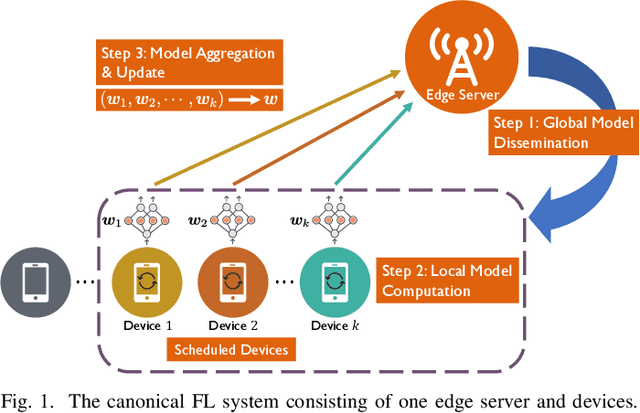Wireless Federated Learning over MIMO Networks: Joint Device Scheduling and Beamforming Design
Paper and Code
Oct 31, 2021

Federated learning (FL) is recognized as a key enabling technology to support distributed artificial intelligence (AI) services in future 6G. By supporting decentralized data training and collaborative model training among devices, FL inherently tames privacy leakage and reduces transmission costs. Whereas, the performance of the wireless FL is typically restricted by the communication latency. Multiple-input multiple-output (MIMO) technique is one promising solution to build up a communication-efficient edge FL system with limited radio resources. In this paper, we propose a novel joint device scheduling and receive beamforming design approach to reduce the FL convergence gap over shared wireless MIMO networks. Specifically, we theoretically establish the convergence analysis of the FL process, and then apply the proposed device scheduling policy to maximize the number of weighted devices under the FL system latency and sum power constraints. Numerical results verify the theoretical analysis of the FL convergence and exhibit the appealing learning performance of the proposed approach.
 Add to Chrome
Add to Chrome Add to Firefox
Add to Firefox Add to Edge
Add to Edge